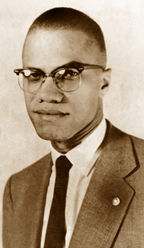|
Volume
75
Number
4


For
whom the bells toll
The Robinson
and Piedmont Foundations have honored Emory University trustee emeritus
Bill Robinson and his wife, Betty, by providing a gift to name the University’s
clock tower and to install carillon bells. The four cast bronze bells
are expected to be in place by fall 2000 and will chime during special
events, such as Commencement. A member of Emory’s Board of Trustees
from 1981 to 1990, Robinson is the former chair of the John H. Harland
Company.
Carpenter
is Oxford’s
First Fulbright
Oxford
College Professor of English Lucas Carpenter was awarded a Fulbright
Grant to lecture in American literature at the Katholieke Universiteit
Leuven in Belgium this spring. He is the first Oxford professor so honored.
The
friendly brain
How does
the brain regulate complex emotions such as fear, aggression, and friendliness?
Do social experiences sculpt the brain as it develops? Sixty neuroscientists
at Emory, Georgia State, Georgia Tech, and the Atlanta University Center
hope to find out with the establishment of the Center for Behavioral
Neuroscience, one of Science and Technology Centers nationwide funded
by the National Science Foundation. The five-year grant will enable
the scientists to study emotional and reproductive behaviors at the
molecular, cellular, and systems levels in diverse species and at various
stages of development. Thomas R. Insel, director of Emory’s Yerkes
Primate Research Center, will head the center.
Year
of Reconciliation
President
William M. Chace has declared the academic year 2000–2001 to be
the “Year of Reconciliation” at Emory. “Reconciliation
is a theme that can draw us together in our work and thought,”
Chace said. “I invite you to think about how your work and imagination
may be understood to bring greater richness to the concept of reconciliation.”
The centerpiece of the year will be a symposium, co-chaired by Chancellor
Billy Frye, Professor of Sociology Robert S. Agnew, Assistant Professor
of New Testament Steven J. Kraftchick, and Professor of Medicine John
H. Stone.
Rollins
offers Web-based MPH
Public
health professionals who do not want to put their careers on hold to
earn a graduate degree can now pursue an education via the new web-based,
seven-semester Career MPH program offered by the Rollins School of Public
Health. The school’s “eLearn” system—which incorporates
electronic discussion boards, e-mail, chat sessions, and audio technology—delivers
course content and lectures via the Internet and serves as an online
classroom. Two weekends each semester, CMPH students attend on-campus
seminars to meet and network with faculty and fellow classmates. Forty
students are currently enrolled in the program.
Does
abuse breed depression?
Traumatic
childhood experiences may be a major indicator of clinical depression
among adults, according to Charles B. Nemeroff, Reunette W. Harris Professor
and Chair of Psychiatry and Behavioral Sciences, whose team of neuroscientists
has received a five-year, $13 million grant from the National Institute
of Mental Health to establish the Conte Center for the Neuroscience
of Mental Health Disorders. “In the U.S. alone in 1995, more than
three million children were reportedly abused or neglected,” Nemeroff
writes. “[T]he findings imply that abuse or neglect may produce
permanent changes in the developing brain—and therefore increase
the victims’ lifelong vulnerability to depression.”
An
ounce of prevention
Emory’s
immunologists and virologists now have labs of their own with the recent
dedication of the seventy-five-thousand-square-foot Vaccine Research
Center adjoining the Yerkes Regional Primate Center. “The idea
of the vaccine center is to create new technologies that will make our
most challenging problems—such as AIDS, malaria, tuberculosis,
influenza, and respiratory viruses—of the past,” says Rafi
Ahmed, professor of microbiology and immunology and the center’s
director. The center emphasizes an interdisciplinary approach among
the hundred-plus investigators within the new building and researchers
throughout Emory’s Health Sciences Center, the nearby U.S. Centers
for Disease Control and Prevention, The Carter Center, and other local
academic institutions.
|
|
|
|
| EM
précis |
| |
| From
Russia with love |
|
 ALEXANDRE
KOSSENKOV has made a splash the size of a
tidal wave in the Eagle diving program. Kossenkov, Emory’s
new diving coach, is a 1976 Olympic bronze medalist in springboard
diving and eleven-time national champion in the former Soviet
Union. “Alexandre is truly one of the world’s diving
greats,” says Emory’s head swim coach Jon Howell.
“He’s a great find for us.” Despite the language
barrier— Kossenkov uses elaborate hand signals and gestures
to communicate with his athletes—the diving team is thrilled
to have a coach of Kossenkov’s caliber. ALEXANDRE
KOSSENKOV has made a splash the size of a
tidal wave in the Eagle diving program. Kossenkov, Emory’s
new diving coach, is a 1976 Olympic bronze medalist in springboard
diving and eleven-time national champion in the former Soviet
Union. “Alexandre is truly one of the world’s diving
greats,” says Emory’s head swim coach Jon Howell.
“He’s a great find for us.” Despite the language
barrier— Kossenkov uses elaborate hand signals and gestures
to communicate with his athletes—the diving team is thrilled
to have a coach of Kossenkov’s caliber.
|
“Alexandre
is truly
|
|
one
of the world's
|
|
diving
greats”
|
“Alex
is extremely patient with all of us,” says Aaron
Klink ’01C. “He’s hands down the best
coach I’ve ever had.” Kossenkov has been in or around
the diving well since the age of seven, when the aspiring Soviet
diver endured seven-hour practices six days a week. As head
coach of the Belorussian diving team, Kossenkov came to Atlanta
for the 1996 Olympic Games. He fell in love with the city and
moved to Kennesaw shortly thereafter. Kossenkov also directs
the Dive Atlanta youth program.
|
| |
|
The
Essence of X
|
|
Emory
acquires slain civil rights leaders correspondence
|
|
MALCOLM
LITTLE
was like many eighth graders during the late 1930s, completing
assignments in “Business Training,” adding his two
cents to “opinion books” circulated among his classmates,
dreaming of a career as an attorney.
The
difference, of course, is that Little grew up to become Malcolm
X, the controversial civil rights leader and Muslim activist.
In September, Emory acquired a cache of correspondence and personal
effects from X’s teen years and early adulthood—including
letters from a prison term during which Little converted to
Islam and changed his name to Malcolm X, believed to be the
only personal correspondence of X available to scholars. The
remainder of his letters are in FBI files.
“This
material shows what an immensely talented individual he was,
even when he was twenty years old,” says David J. Garrow,
Presidential Distinguished Professor of Law and Pulitzer Prize–winning
biographer of Martin Luther King Jr.
Born
in Omaha, Nebraska, in 1925 to a Baptist minister and his wife,
X grew up in Lansing, Michigan. After his father’s violent
death and his mother’s institutionalization, he moved to
Boston to live with his sister Ella. He was a
“This
collection makes crystal
clear that Malcolm was someone
of very impressive intellect, though nonetheless cleared troubled,
long before he became a Muslim.”
petty
criminal as a teenager and was sent to prison in 1946. There he
became a disciple of Elijah Muhammad, head of the Nation of Islam.
Released in 1952, X devoted his life to the Black Muslim movement.
In 1964, after a pilgrimage to Mecca, he broke with the Nation
of Islam. He was assassinated on February 21, 1965.
X’s
papers and personal effects are on long-term loan to the Special
Collections Department in the Robert W. Woodruff Library. They
are the property of James Allen, an Atlanta antiques dealer
and Malcolm X enthusiast, and his friend, John Littlefield,
who purchased them from a Boston collector.
Allen
told the Atlanta Journal-Constitution that he considers
X to be as important a figure in the civil rights struggle as
Martin Luther King Jr. The letters, Allen said, “personalize
him and the times in which he lived, enumerate the demons he
fought and overcame, and rekindle the devotion and love he inspired
in life.”
–Sharla
A. Paul
|
|
Little,
in search of himself, 1948
|
|
A
recent convert, March 1950
|
|
Hello Sis,
. . .This being Easter, I thought it would be nice of me if
I tried to write you a charming letter. However, I fear I’ve
lost my touch. Charming and flattering people used to be easy
for me to do but now I’m finding it extremely difficult.
Maybe I’m growing old and more serious. Better still, maybe
I am just to [sic] evil. I do get my kicks by writing you irritating
letters. I must have inherited some sadistic traits from someone
along the line somewhere. Whom? . . .
Maybe I’m just beginning to find myself in this crazy
world. . . .
Now that the baseball season has begun I have much to occupy
my mind because I follow Jackie Robinson and the Brooklyn Dodgers
so closely that, at times, I forget I’m in prison. . .
.
I remain
Your Brother
Malcolm
—Excerpted from a letter to Ella Collins
|
My Most Dearly Beloved Brother Raymond,
May the All-Wise Allah be with you as I write, and may He bestow
upon you Eternal Life. . . .
. . . The most beautiful thing in the world, and is a beauty
that forever attracts, is that which is read in the depths of
ones [sic] eyes—therein lies the essence of ones [sic]
Soul—the Book of Allah—for it is this deep unfathomable
work of Nature that forever leaves the onlooker mute with silent
admiration. . . .
. . . So you went to college? I must seem quite dumb to you
then (in a way). I only finished eighth grade, but I’ve
always been all eyes and ears (and even all nose) on the side.
One can pick up some bits of knowledge here and there that way.
. . .
Sincerely
Your Brother in Truth,
Malcolm X.
—Excerpted from a letter to “Raymond,” a
friend and fellow Muslim
|
>>>
|


 ALEXANDRE
KOSSENKOV has made a splash the size of a
tidal wave in the Eagle diving program. Kossenkov, Emory’s
new diving coach, is a 1976 Olympic bronze medalist in springboard
diving and eleven-time national champion in the former Soviet
Union. “Alexandre is truly one of the world’s diving
greats,” says Emory’s head swim coach Jon Howell.
“He’s a great find for us.” Despite the language
barrier— Kossenkov uses elaborate hand signals and gestures
to communicate with his athletes—the diving team is thrilled
to have a coach of Kossenkov’s caliber.
ALEXANDRE
KOSSENKOV has made a splash the size of a
tidal wave in the Eagle diving program. Kossenkov, Emory’s
new diving coach, is a 1976 Olympic bronze medalist in springboard
diving and eleven-time national champion in the former Soviet
Union. “Alexandre is truly one of the world’s diving
greats,” says Emory’s head swim coach Jon Howell.
“He’s a great find for us.” Despite the language
barrier— Kossenkov uses elaborate hand signals and gestures
to communicate with his athletes—the diving team is thrilled
to have a coach of Kossenkov’s caliber.